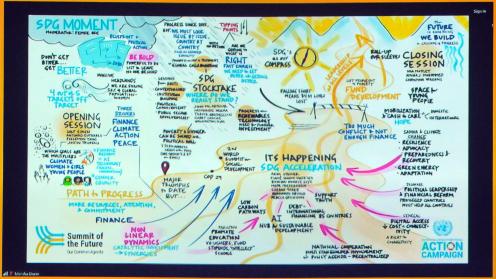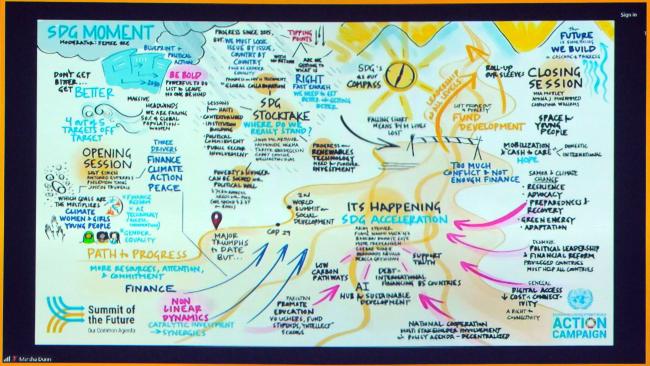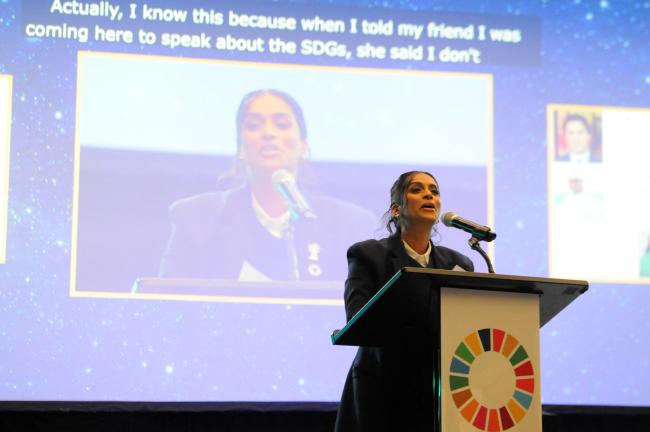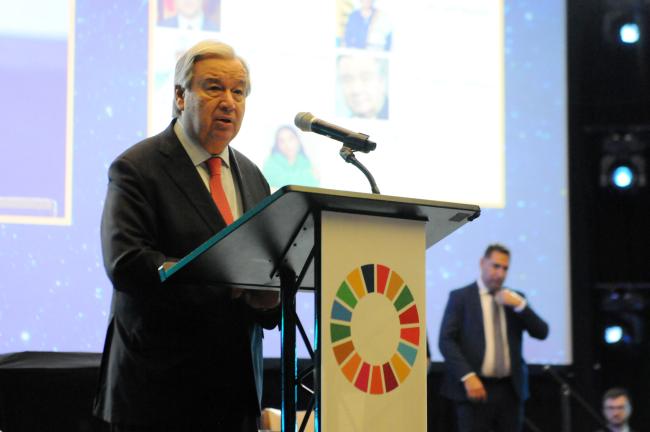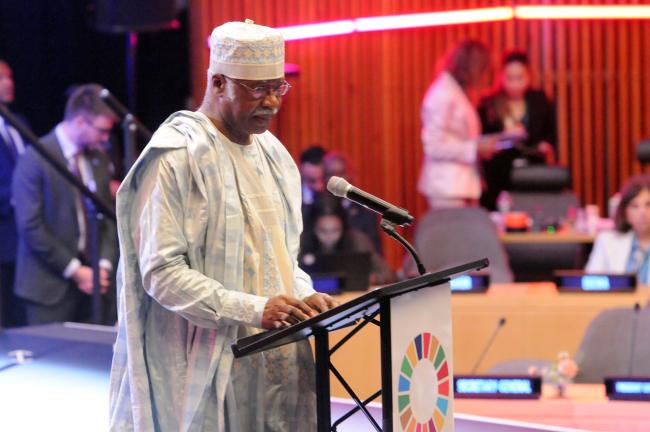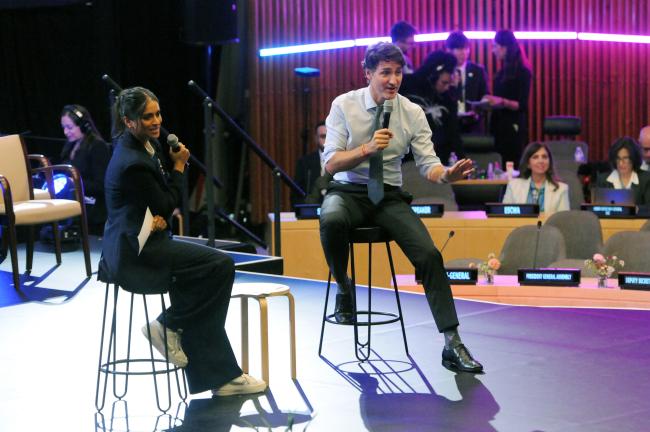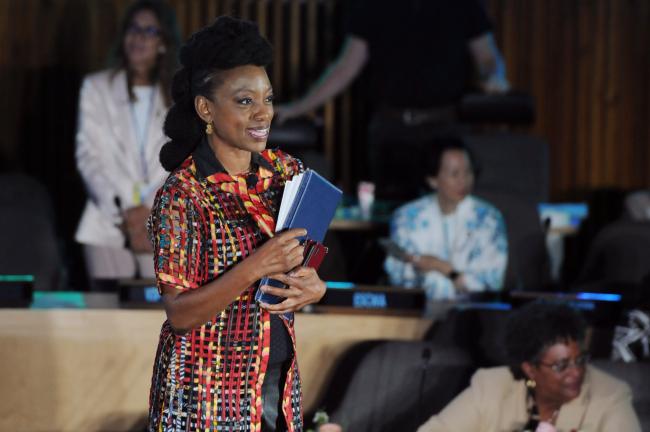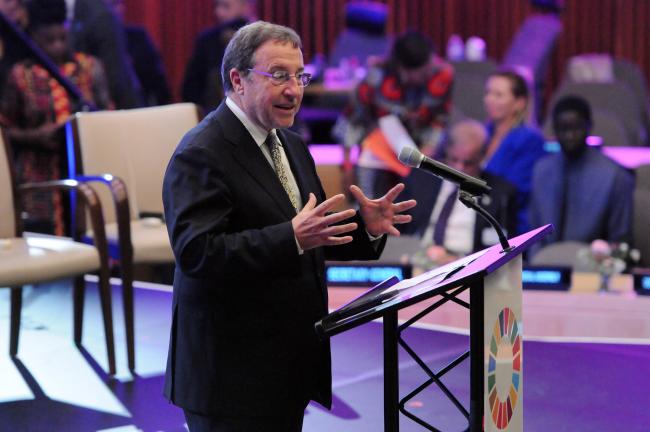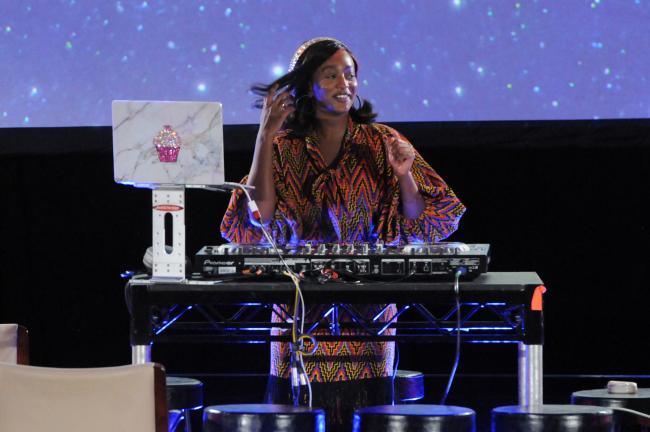About
Held immediately following the Summit of the Future, the 2024 event brought together diverse voices to discuss how to reinvigorate the 2030 Agenda and the global governance system that underpins it.
SDG Moment: Leveraging Just Transitions for SDG Acceleration
Convening immediately following the Summit of the Future, the 2024 SDG Moment aimed to highlight the role of political leadership, SDG investment and partnerships in advancing three key transitions: food systems transformation; the renewable energy revolution; and digital connectivity. Organized around a series of inspirational talks and informal conversations, it brought together a diverse mix of speakers from government, international organizations, women, youth, academia, business and the arts.
Introducing the session, Lilly Singh, UN Secretary-General's SDG Advocate, stressed that in the face of slow SDG progress, the response should not be to lower expectations, but to bring more resources, attention and innovation to tackle remaining gaps.
António Guterres, UN Secretary-General, noted that the just-adopted Pact for the Future recognizes the need for an annual USD 500 million SDG Stimulus, as called for by the 2023 SDG Summit.
Philémon Yang, President, UN General Assembly, said the 2023 SDG Summit had adopted a strong political declaration, launching a new phase of accelerated action on the Global Goals. Noting the main challenge today is to maintain focus, he said the just-adopted Pact for the Future offers a dynamic framework for strengthening international cooperation towards this end.
In a conversation with Lilly Singh, Justin Trudeau, Prime Minister of Canada, and Co-Chair of the SDG Advocates, discussed three key priorities to get the SDGs back on track: climate action, and the empowerment of women and youth. On his takeaways from the Summit of the Future, he said one of the critical issues is how to reform the international financial architecture to ensure access to long-term climate financing and new technologies for those who need it the most.
Several discussion segments then ensued, moderated by Femi Oke, Co-Founder, Moderate the Panel. John McArthur, Director, Centre for Sustainable Development, opened the first segment on “SDG Stocktake: Where Do We Really Stand?” He noted that while it may be easy to think that things are getting worse, a different, more hopeful picture emerges when the SDGs are evaluated by issue and by country.
The next panel discussion with Garry Conille, Prime Minister of Haiti, Tariye Gbadegesin, CEO, Climate Investment Funds, Nomonde Ngema, HIV activist, and Wellington Dias, Minister for Development and Social Assistance, Brazil, highlighted SDG brightspots such as HIV/AIDS treatment, and remaining gaps such as hunger and poverty.
In the high-level “It’s Happening: Just Transitions for SDG Acceleration” segment, several Heads of State and Government discussed key levers to accelerate the 2030 Agenda. In introductory remarks, Achim Steiner, UN Development Programme (UNDP) Administrator, underscored the importance of making good political choices to achieve the SDGs. Strategic paths to invest at scale, he continued, include the transition towards low carbon pathways, as well as efforts to bridge the digital divide.
Fiamē Naomi Mata'afa, Prime Minister of Samoa, described a multifaceted approach to the existential threat of climate change for her country, including by building financial and technical capacity. Mette Frederiksen, Prime Minister of Denmark, called for a reform of the international financial system. Bassirou Diomaye Faye, President of Senegal, said connectivity should be a universal right enshrined in our constitutions. Shehbaz Sharif, Prime Minister of Pakistan, said investment in education can play a pivotal role for development. Bernardo Arévalo, President of Guatemala, described efforts to foster more inclusive decision-making through decentralization.
Rebeca Grynspan, Secretary-General, UN Trade and Development (UNCTAD), offered final reflections in which she called for unlocking catalytic investments in developing countries, and focusing these investments on areas that unleash the most synergies, such as education and gender.
The closing session featured an intergenerational discussion between Christina Williams, SDG4 Youth and Student Network, Mia Mottley, Prime Minister of Barbados, and Amina J. Mohammed, UN Deputy Secretary-General. Williams called for young people to use their “seat at the table” to foster greater inclusion of other young people who are unrepresented. Mottley said the “elephant in the room is financing.” Mohammed called for all stakeholders to “roll up our sleeves,” as “we know what to do.”
The SDG Moment ended with a performance by DJ Cuppy.
To receive free coverage of global environmental events delivered to your inbox, subscribe to the ENB Update newsletter.
All ENB photos are free to use with attribution. For this event, please use: Photo by IISD/ENB - Diego Noguera
